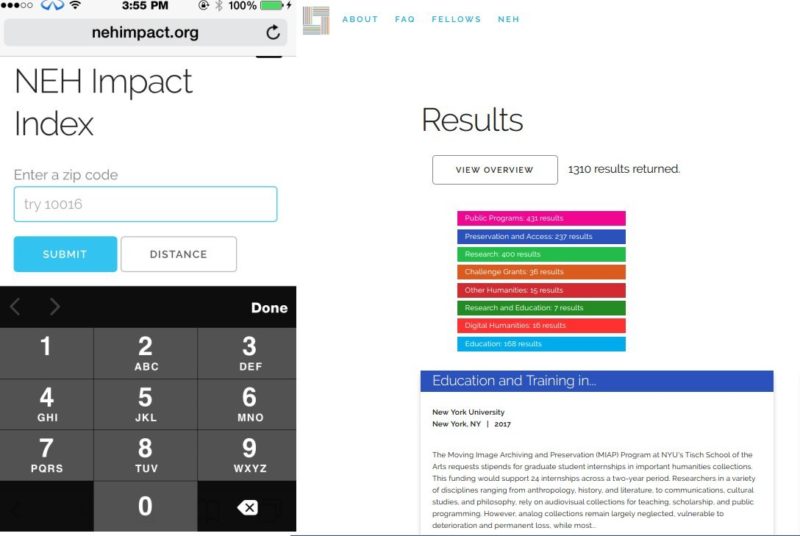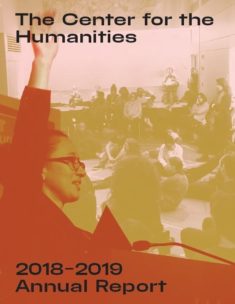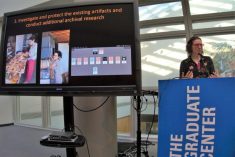About this Public Humanities Project
Patrick Smyth, a Ph.D. student in English and Digital Fellow at the Graduate Center, CUNY, teacher at Queens College, and developer of the NEH Impact Index app, is the recipient of the 2018 Public Humanities Fellowship from the Humanities New York and the Center for the Humanities at the Graduate Center, CUNY for his public humanities project Apps for Activists.
In 2017, the National Endowment for the Humanities, an independent government agency dedicated to funding research, preservation, and pedagogy in the humanities, was faced with a proposal by the Trump administration that would cut all funding and end the NEH's 52 years of public service. In response, as part of a larger series of projects and visualizations by students at the Graduate Center, CUNY, Patrick Smyth created a web application, the NEH Impact Index at nehimpact.org that shows how the NEH has a local impact that goes beyond big cities, large institutions, and blue states. The app was covered widely at a critical time for the NEH, including broad exposure on Twitter, a profile in Phi Beta Kappa, and an article in PC Magazine.
In 2018, as the Public Humanities Fellow with support from Humanities New York and the Center for the Humanities at the Graduate Center, Patrick Smyth is building on the work started with the NEH Impact Index to show how the humanities, and the institutions and agencies that support it, are crucial for causes important to our culture and democracy. The model used by projects like the NEH Impact Index has shown that attention to detail, interactivity, and the use of open data can engage the public in the service of democratic causes. To allow others to build citizen technology that persuades the public, Patrick is creating a set of resources and an accompanying series of training sessions available to humanities scholars in New York that would prepare them to unite data and design for activism and service.
This Public Humanities Fellowship and Project is sponsored by Humanities New York and the Center for the Humanities at the Graduate Center, through support from the Andrew W. Mellon Foundation.


